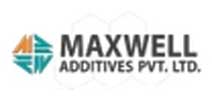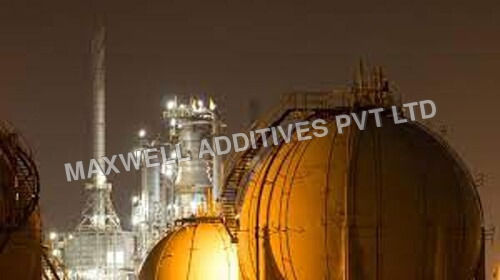Corrosion Inhibitors for Hydro Testing
Price 125 INR/ Kilograms
Corrosion Inhibitors for Hydro Testing Specification
- Ph Level
- 10.0-12.0
- Boiling point
- 100 Degress Celcius
- Density
- Approx 1.15 Milligram per cubic meter (mg/m3)
- Smell
- Pungent
- Taste
- Odorless
- Form
- Liquid
- Purity
- 30-50%
- Other Names
- Water Corrosion Inhibitor
- HS Code
- 38249900
- Storage
- Dry Place
- Melting Point
- Above 400 0C
- Solubility
- Soluble
- Classification
- Other
- CAS No
- 9003-0306
- Grade
- Industrial Grade
- Standard
- Industrial
- Type
- Non-Hazardous
- Usage
- The product dose depends on quality of water and corrosive tendency of atmosphere also in some cases. But in general 10 to 1000 ppm is sufficient. More particularly, the dose may be 300-500 ppm. The product may be dosed by a slug feed or by blending with the aqueous fluid as the system is being filled. One can dose the material continuously using metering pump also.The pH of the aqueous system in which the product may be applied ranges from about 5 to about 12. The pH is preferably in the range from about 6 to about 10.The dosage can be increased for more severe conditions.
- Main Material
- Ammonium Polyacrylate
- Application
- Water Treatment, Industrial, Oil Industry, Textile Industry
Corrosion Inhibitors for Hydro Testing Trade Information
- Minimum Order Quantity
- 500 Kilograms
- FOB Port
- JNPT and Mundra
- Payment Terms
- Cash Advance (CA)
- Supply Ability
- 10000 Kilograms Per Month
- Delivery Time
- 5 Days
- Sample Available
- Yes
- Sample Policy
- Free samples are available
- Packaging Details
- 50 Kg Carboy and 200 Kg Drum
- Main Export Market(s)
- Middle East, Africa
- Main Domestic Market
- All India
- Certifications
- ISO,Food and Drug License
About Corrosion Inhibitors for Hydro Testing
Metals are widely used in the construction of equipment associated with aqueous systems in which metals remain in contact with aqueous fluids on a regular basis, for example, hydro-testing of metallic equipments, fire extinguishing systems containing water, cooling or heating systems, heat exchangers and many more. The aqueous system generally contains vessels, piping, valves etc. When water comes in contact with these systems, corrosion of the metal, during and after contact is a concern. OLKLIN-CIQUA-924 when added to water in small concentrations are able to preventcorrosion during wet storage. The corrosion inhibitor prevents corrosion even after vacating water from the system..
The mechanism of OLKLIN-CIQUA-924 corrosion inhibitor is to prevent corrosion of metals in three phases - within the solution, at the water line, and above the water line. It also prevents corrosion in the areas which are not reachable with other corrosion inhibitors.
Contents-
The product is a combination of corrosion inhibitors, alkalinity builders, passivator, surface modifiers, chelating agents, oxygen scavenger and capable to protect various metals from corrosion even in the presence of relatively high concentrations of Chloride and Sulfate ions. The product is suitable to reach every corner of the system that requires protection from severe corrosive atmosphere.
Efficient Corrosion Protection for Hydro Testing
Our water-soluble corrosion inhibitor offers robust protection for metal systems during hydro testing by forming a defensive layer that minimizes corrosion risk. With a pungent smell and liquid form, it integrates easily into water systems, making it ideal for industrial and commercial applications. Its compatibility with broad pH and temperature ranges ensures consistent performance, even in demanding environments. The product helps maintain system integrity and prolongs equipment lifespan.
Flexible and Easy Dosage Methods
The product can be introduced by slug feeding, pre-blending, or continuous metering, ensuring flexibility to suit specific operational needs. A typical dose ranges from 10 to 1000 ppm, and it is adaptable based on water quality and environmental conditions. Operators can increase the dosage for more aggressive corrosive settings, thereby guaranteeing optimal system protection. It is compatible with most water treatment processes, streamlining integration into existing workflows.
FAQs of Corrosion Inhibitors for Hydro Testing:
Q: How should I apply the corrosion inhibitor during hydro testing?
A: You can apply the corrosion inhibitor by slug feeding, blending it with the fluid while filling the system, or using a metering pump for continuous dosing. Choose the method that best aligns with your operational setup for maximum protection against corrosion.Q: What is the recommended dosage for the corrosion inhibitor?
A: The general recommended dosage ranges from 10 to 1000 ppm, with 300-500 ppm being suitable for most applications. For severe atmospheric or water conditions, the dosage can be adjusted upwards as needed.Q: Where can this corrosion inhibitor be used effectively?
A: This product is versatile and can be used in water treatment plants, the oil industry, and textile manufacturing, or any industrial setup requiring protection against metal corrosion during hydrostatic testing processes.Q: What are the main benefits of using this water corrosion inhibitor?
A: The inhibitor prevents corrosion, extending equipment life, reducing maintenance costs, and preserving operational efficiency. Its water solubility and broad pH compatibility enhance ease of use across a spectrum of applications.Q: When should I consider increasing the dosage of the inhibitor?
A: Increase the dosage in more severe or corrosive environments, or if water quality and atmospheric conditions are particularly challenging. Monitoring system performance helps determine if higher doses are needed.Q: What safety and storage considerations should I be aware of?
A: The product is non-hazardous but should be stored in a dry place. It has a pungent smell and a boiling point of 100C. Always follow normal industrial safety guidelines during handling and dosing.

Price:
- 50
- 100
- 200
- 250
- 500
- 1000+
More Products in Oil and Gas Drilling Chemicals Category
Silicon based Defoamers
Price 100 INR / Kilograms
Minimum Order Quantity : 100 Kilograms
Form : Liquid
Purity : 20%
Grade : Industrial Grade
Chemical Name : Silicone Base Defoamer
OLKLIN-OSPS Oxygen Scavenger
Price 50 INR / Kilograms
Minimum Order Quantity : 100 Kilograms
Form : Powder
Purity : High
Grade : Industrial Grade
Chemical Name : Other, Oxygen Scavenger
OLKLIN-VES (Visco Elastic Surfactant)
Price 130 INR / Kilograms
Minimum Order Quantity : 1000 Kilograms
Form : Liquid
Purity : High
Grade : Industrial Grade
Chemical Name : Visco Elastic Surfactant
Emulsifier chemical
Price 150 INR / Kilograms
Minimum Order Quantity : 100KG Kilometers
Form : Liquid
Purity : High
Grade : Industrial Grade
Chemical Name : Emulsifier chemical

 Send Inquiry
Send Inquiry





 Send Inquiry
Send Inquiry Send SMS
Send SMS Call Me Free
Call Me Free